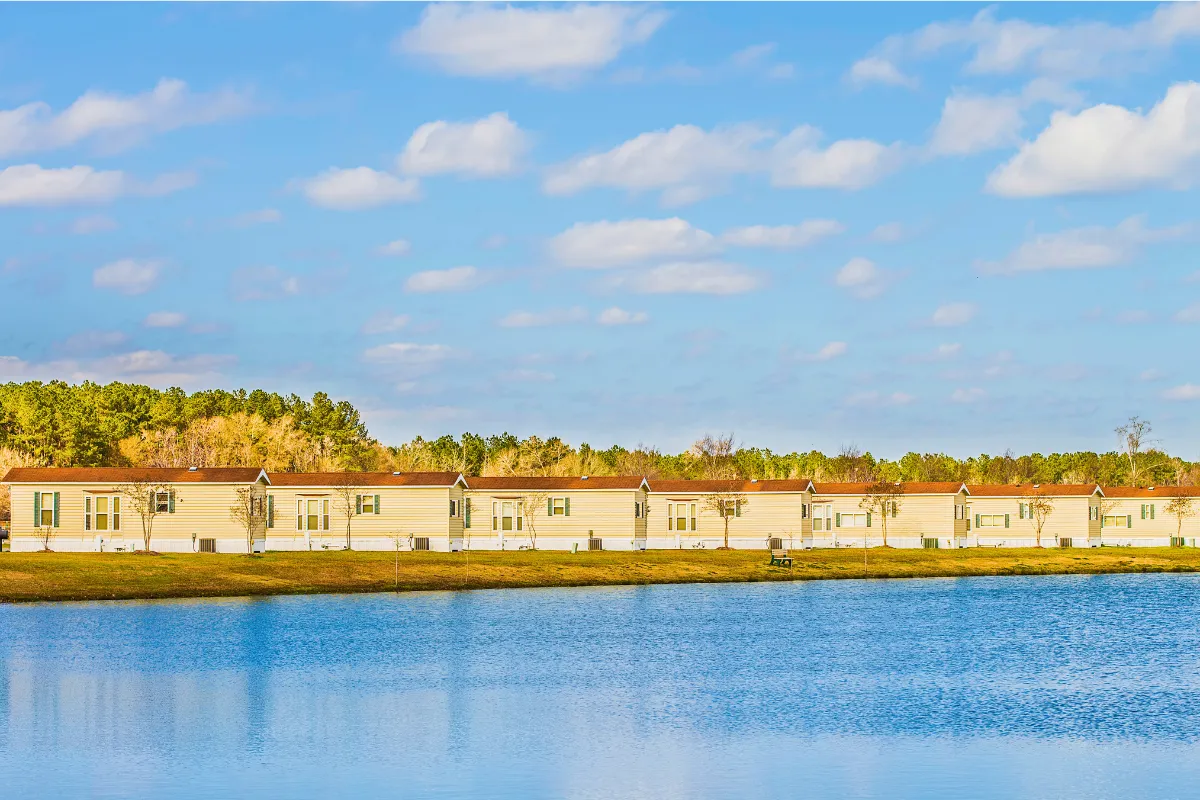The dream of homeownership often seems out of reach for many, especially with the ever-rising costs of traditional housing. However, an alternative exists that offers a more affordable path: manufactured homes. These prefabricated homes, built in a factory and transported to a site, have gained popularity as a budget-friendly housing solution. But how affordable are they truly? Let's delve into the details.
Understanding Manufactured Homes
Manufactured homes are factory-built homes constructed to federal building code standards. They are distinct from modular homes, which are built in sections and assembled on-site. Manufactured homes are typically more affordable due to efficient production methods and lower labor costs.
The Affordability Factor
Initial Purchase Cost:
- Lower Upfront Costs: Manufactured homes generally cost less than traditional site-built homes of comparable size. This is primarily due to the streamlined production process and economies of scale.
- Customization Options: While basic models are more affordable, you can customize your home with additional features and upgrades, which will increase the overall cost.
Ongoing Costs:
- Property Taxes: Property taxes on manufactured homes can vary depending on local regulations. In some areas, they may be assessed at a lower rate than traditional homes.
- Insurance: Insurance costs for manufactured homes can be comparable to traditional homes, but specific rates will depend on factors like location, coverage, and the home's value.
- Utilities: Utility costs for manufactured homes are generally similar to those of traditional homes, as they rely on the same essential services like electricity, water, and gas.
- Maintenance and Repairs: While manufactured homes often require less maintenance than traditional homes, regular upkeep is still necessary. Routine tasks like cleaning, painting, and minor repairs can help extend the life of your home.
Financing Options:
- Manufactured Home Loans: These specialized loans are available to finance the purchase of a manufactured home. They often have flexible terms and lower down payment requirements compared to traditional mortgages.
- Chattel Loans: These loans are used to finance the purchase of the home itself, but not the land. If you're renting a lot in a mobile home park, a chattel loan may be sufficient.
- Land Loans: If you plan to purchase land for your manufactured home, you'll need a separate land loan. This loan will cover the cost of the land and any necessary site preparation.
Land Ownership vs. Lot Rental
One of the significant factors affecting the overall cost of a manufactured home is whether you own the land or rent a lot in a mobile home park.
Owning Land:
- Pros:
- Permanent Ownership: You own the land and the home, providing long-term security.
- Potential for Appreciation: The value of your property may increase over time, especially if you're in a desirable location.
- Freedom to Customize: You have the freedom to customize your property as you wish, such as adding landscaping, a deck, or a garage.
- Cons:
- Higher Upfront Costs: Purchasing land can be expensive, especially in desirable areas.
- Additional Responsibilities: You'll be responsible for property taxes, land maintenance, and potential property taxes.
Renting a Lot:
- Pros:
- Lower Upfront Costs: You only need to finance the home itself, making it a more affordable option for many.
- Community Amenities: Mobile home parks often offer amenities like swimming pools, clubhouses, and recreational facilities.
- Lower Property Taxes: In some cases, property taxes on a manufactured home in a park may be lower than on a traditional home.
- Cons:
- Monthly Lot Rent: You'll need to pay monthly rent to the park owner.
- Limited Control: You're subject to the park's rules and regulations, which can limit your ability to customize your property.
- Potential for Rent Increases: The park owner may increase lot rent over time.
The Downsides to Consider
While manufactured homes offer many advantages, it's important to be aware of potential drawbacks:
- Depreciation: Manufactured homes tend to depreciate faster than traditional homes, which can impact their resale value.
- Location and Zoning: Zoning regulations in some areas may restrict the placement of manufactured homes.
- Transportation Costs: Transporting a manufactured home to your desired location can add to the overall cost.
The Bigger Picture: A Sustainable Housing Solution
Beyond affordability, manufactured homes can offer several environmental and social benefits:
- Energy Efficiency: Many manufactured homes are built with energy-efficient features, such as high-performance insulation and efficient appliances.
- Reduced Environmental Impact: The controlled manufacturing process can minimize waste and pollution compared to traditional construction.
- Community Building: Mobile home parks can foster a sense of community and provide affordable housing options for families.
In conclusion, manufactured homes offer a viable and affordable housing solution for many people. By carefully considering factors like land ownership, financing options, and potential drawbacks, you can make an informed decision about whether a manufactured home is the right choice for you.
